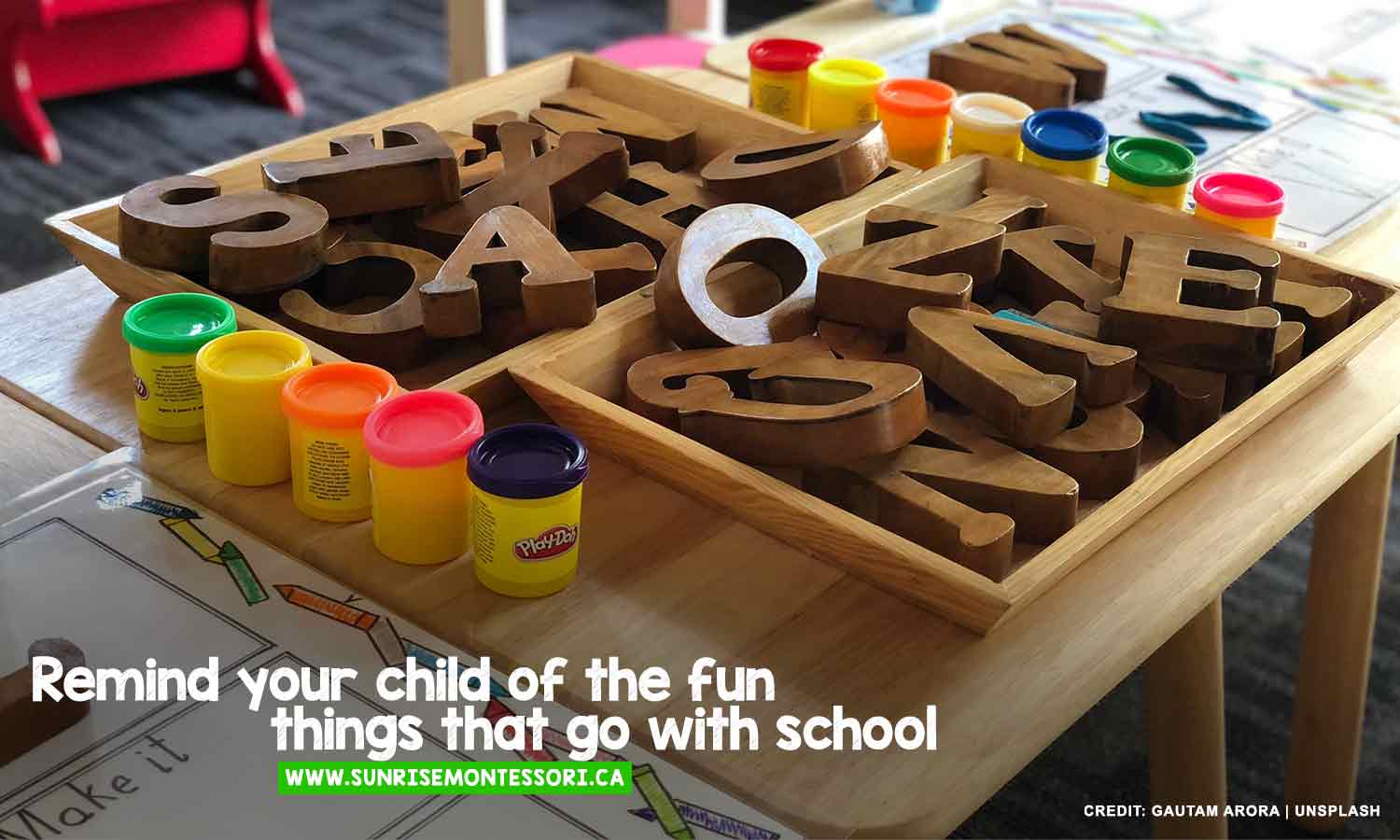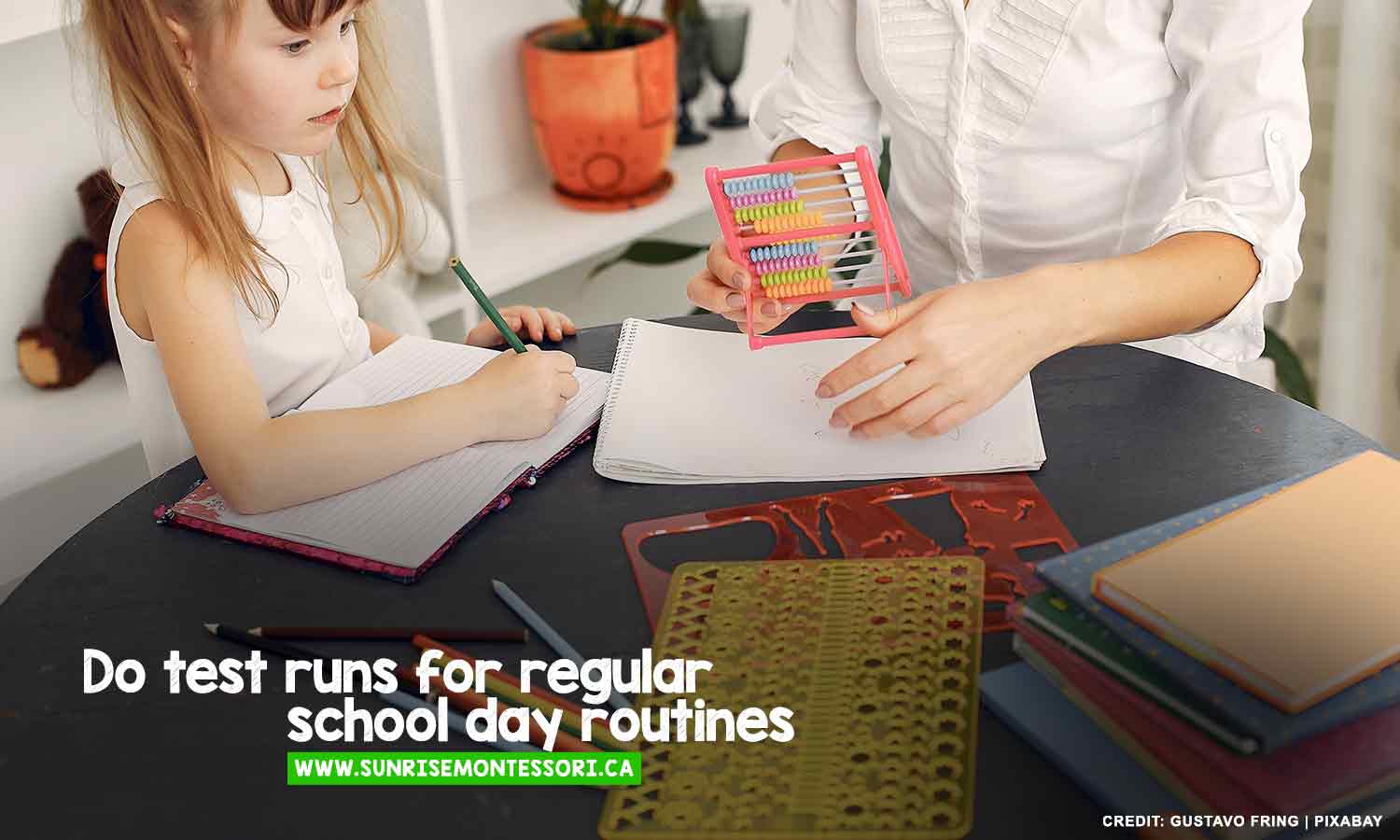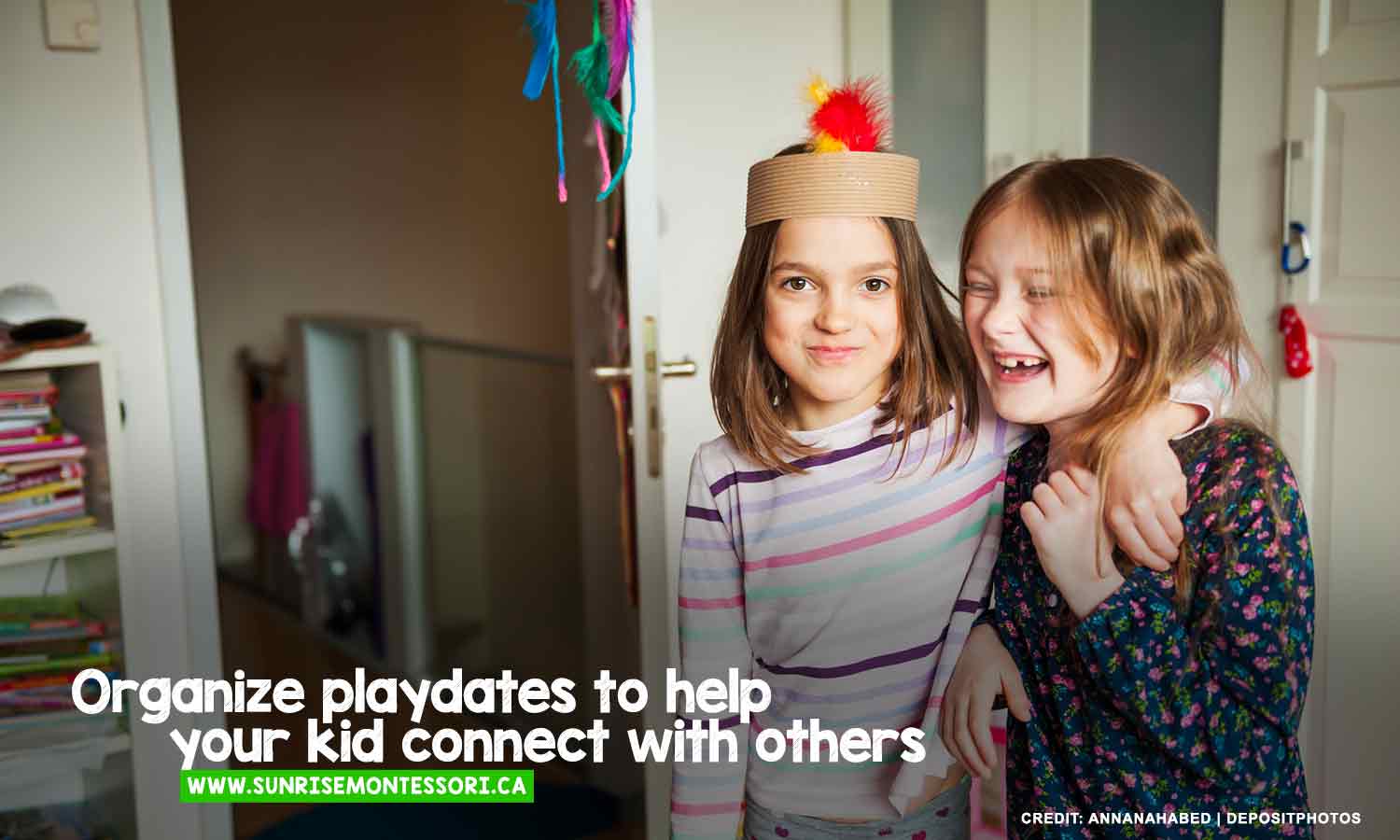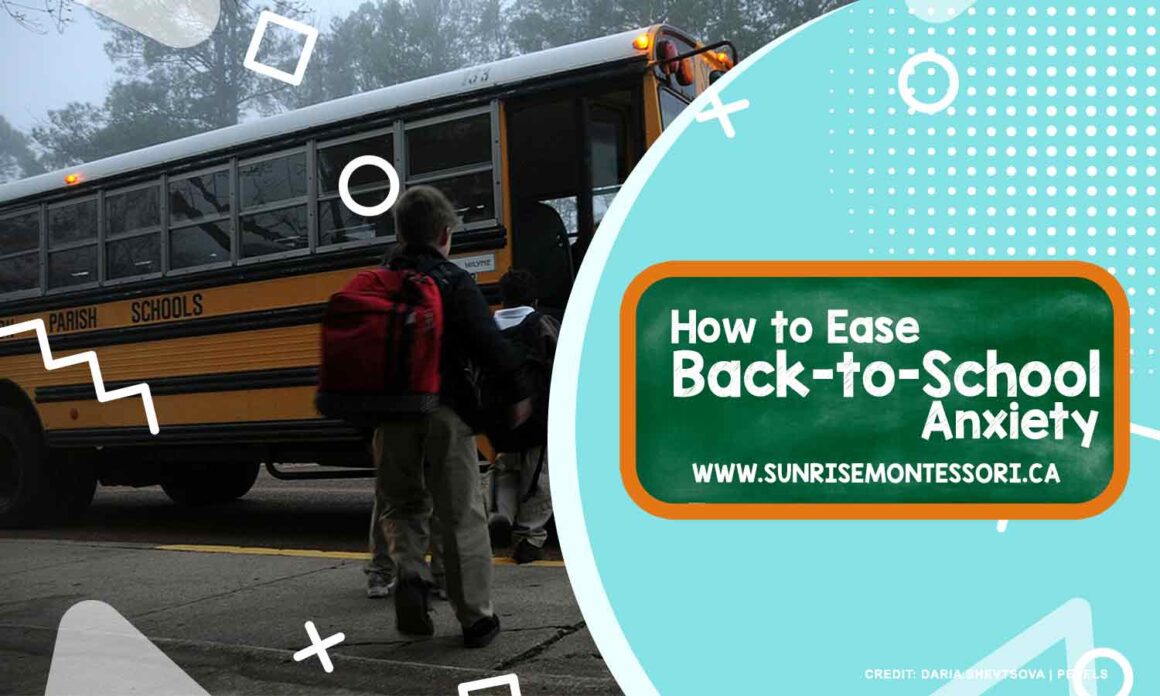Transitioning back to school can be a stressful time for kids, especially now that the pandemic has shaken things up. Kids at the preschool stage are often prone to worrying since school is still a fairly new concept to them. In some cases, your kid’s behaviour can reflect their anxieties.
Anxiety about going back to school can manifest in a myriad of ways including:
- Repeatedly seeking reassurance or asking questions (e.g. “What if my friends aren’t in my class?”)
- Frequent physical complaints, (e.g. headaches and stomachaches)
- Changes in sleep patterns (e.g. taking an hour to fall asleep when they normally nod off right away)
Whatever the case may be for your child, it helps to let them slide into the new routine. Here are a few steps you can take to help your little one adjust to the coming school year and help them start strong.

1. Focus on the positives
Positive thinking is a powerful tool for getting your kid’s mind off their worries. Highlight the things that make school great. Elementary school kids have plenty to look forward to, like favourite snacks, creative activities, and meeting up with friends.
In many cases, children tend to dwell on the negatives, like having to wake up early, less playtime, and needing to sit still for hours on end. They end up forgetting about the silver linings that come with school. Remind them of these positives to help them see school is also a fun, rewarding experience.
2. Approach the anxiety head-on
One common knee-jerk reaction for many parents is reassuring their children that things will be fine. However, it’s more effective to acknowledge when your little one feels anxious and help them work through the current problem.
Think about small steps that can help them face their problems. If they’re worried about the bus, for instance, visit the bus stop together so you can help overcome that fear. Give your child plenty of attention and praise how brave they’re being. It’s a good way to take their attention off their anxiety and get them to understand they can handle what’s coming.

3.Ensure they get enough sleep
Getting a good night’s sleep is a great way to prevent anxiety. It’s generally a good idea to transition your kid from their summer wake-up time back to their school day hour.
When your little one has been sleeping a little later during the holidays, roll the clock back 30 minutes each day until school starts. Once your child is back in bed at their usual time, you can ensure they’re getting enough sleep to face each day. It also helps to leave screens (e.g. phones and tablets) out of the room at night to avoid disrupting their sleep patterns.
4. Help your kid feel in control
Helplessness over a situation can be a great source of anxiety. Helping your child establish a sense of control and learn to deal with trying situations will better prepare them to return to the classroom.
One way of giving them control is to allow your kid to choose what to wear or eat before school. Giving children some say in how to start the day helps them view school in a more positive light. You can also give them more options in tackling school-related subjects. Try helping them make lunch the night before or build a personal homework nook.

5.Practice school routines
Doing test runs can help ease your little ones into school mode. Before the school year officially starts, do a walk-through of your normal morning routine to help ease your kid into it.
Go all the way; wake your children up at the right time, have breakfast, and walk to school or the bus stop. Do this for a few days to help your kid get used to the routine in advance. After every practice run, talk with your little one about successes and challenges to give them some more preparation for the start of school. This is also a good time to do some problem-solving in anticipation of any issues that may pop up (e.g. who to turn to for assistance).
6. Set a good example
It always helps to give your little one a model for the behaviour you expect from them. Children learn from imitating their parents. Setting a good example for your child is a great way to teach them what to do when anxiety strikes.
It is natural to feel a little frustrated yourself, particularly when dealing with your kid during a temper tantrum. However, keep in mind that those actions are born of anxiety. Take deep breaths and calm yourself down in case the going gets tough. Engage in a mindfulness strategy like counting objects to regain your composure and deal with tantrums calmly.

7. Set up playdates
Help your kid reconnect with other children, especially old friends and those in the same class. Arrange a few playdates with some of your child’s friends. Get a hold of their class list and invite both old and new faces. It’s also a great way to introduce your kid to their new classmates so they don’t worry about making new friends on the first day.
Allowing them to interact with their peers (even through video calling or with social distancing) will give them a reason to look forward to returning to school. Think of it as a golden opportunity to let the kids help each other get over the dread of reentering the classroom.
8. Integrate roleplay
Most children like playing pretend. A little roleplaying can help visualize solutions for your little one. Simulate expected scenarios with them to help them develop strategies for dealing with anxiety. Exposing them to such situations in a controlled environment is a great way teach them to make plans on the fly.
Let them play a bullying classmate or a tough teacher, then model appropriate responses and coping techniques. This approach gives your kid a positive model to follow in stressful situations and helps them build some confidence to handle them.

9. Remind your child they’re not alone
Your little one is not the only one feeling a nervous about the new school year. It pays to let them know that their classmates might feel the same way they do. Let them think of it as a chance to bond with their classmates so they can find a way to overcome their nervousness together.
Teachers also know their students may be a little anxious on their first day. Let your child know that they can turn to their teachers for help.
10. Take some time off
The first few days of school are the most crucial. If your child shows signs of anxiety, give them your full attention and support. If possible, take some time off work a few days before and after school starts to help with the transition.
If you’re still working during those days, arrange your hours so you can drop your child off in the morning and pick them up right after school. When you are at home, make time for your kid and ask about their day. This approach is key to making them feel more secure, and helping them navigate the new school year.
It’s normal to experience back-to-school anxiety, especially amid the coronavirus pandemic. However, a little support on your part comes a long way. Keep these tips in mind to help your kid transition back to school as smoothly as possible.
At Sunrise Montessori School, we specialize in providing a well-rounded education for our students. It’s not enough for us to mould minds; we also cater to supporting children’s physical, psychological, and moral development. Call us now at (905) 477-2833 to discuss your child’s educational needs.

